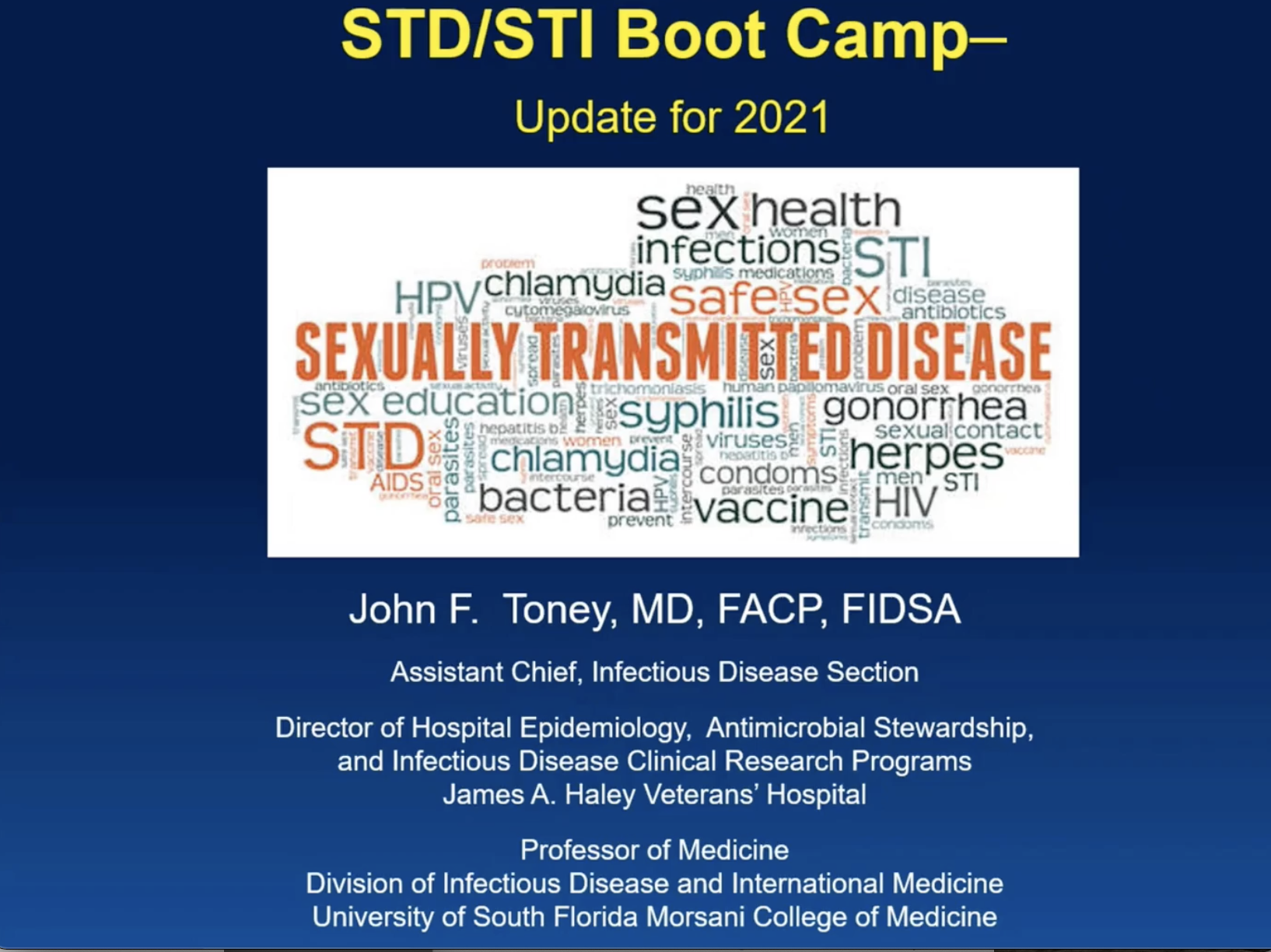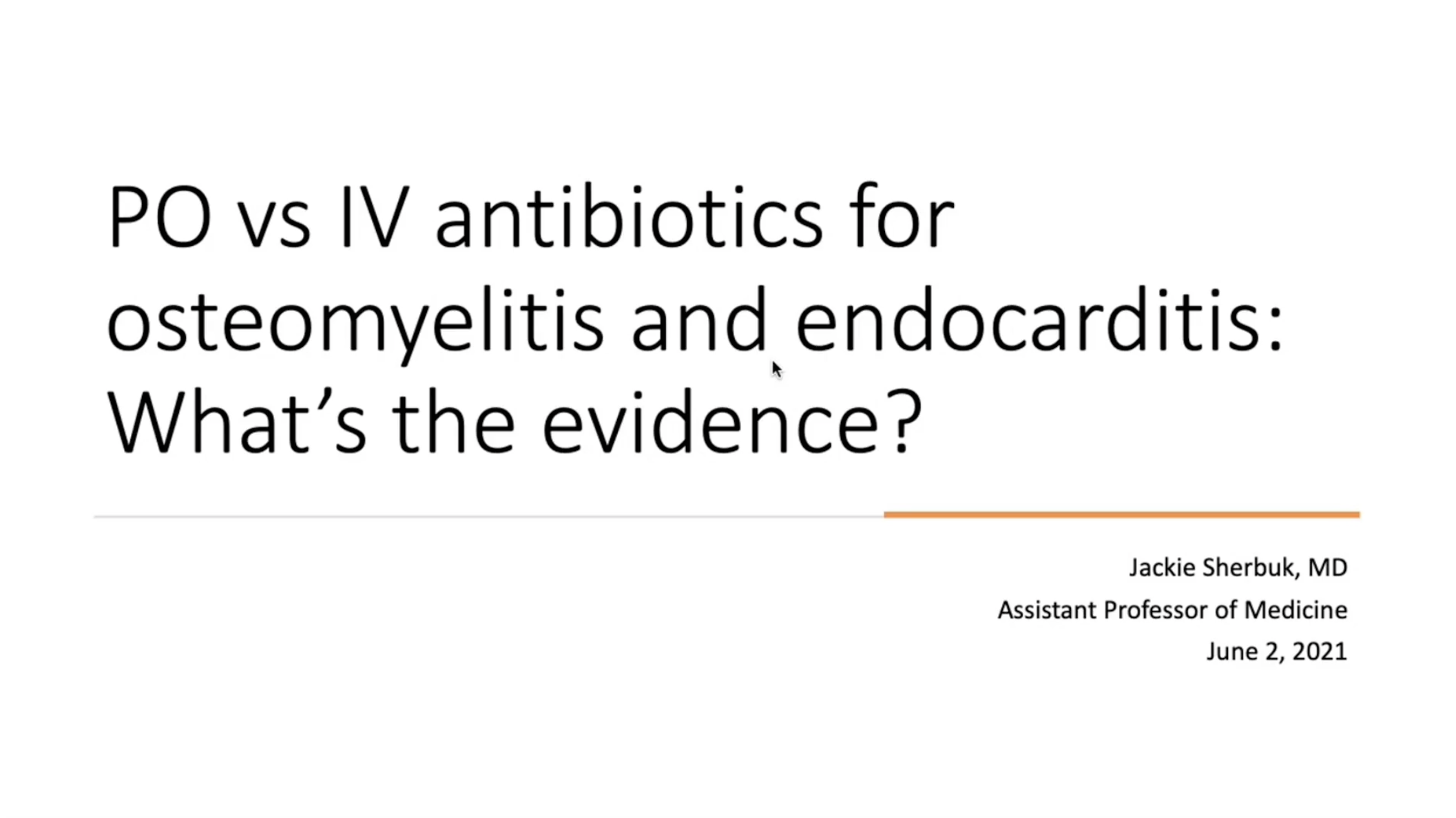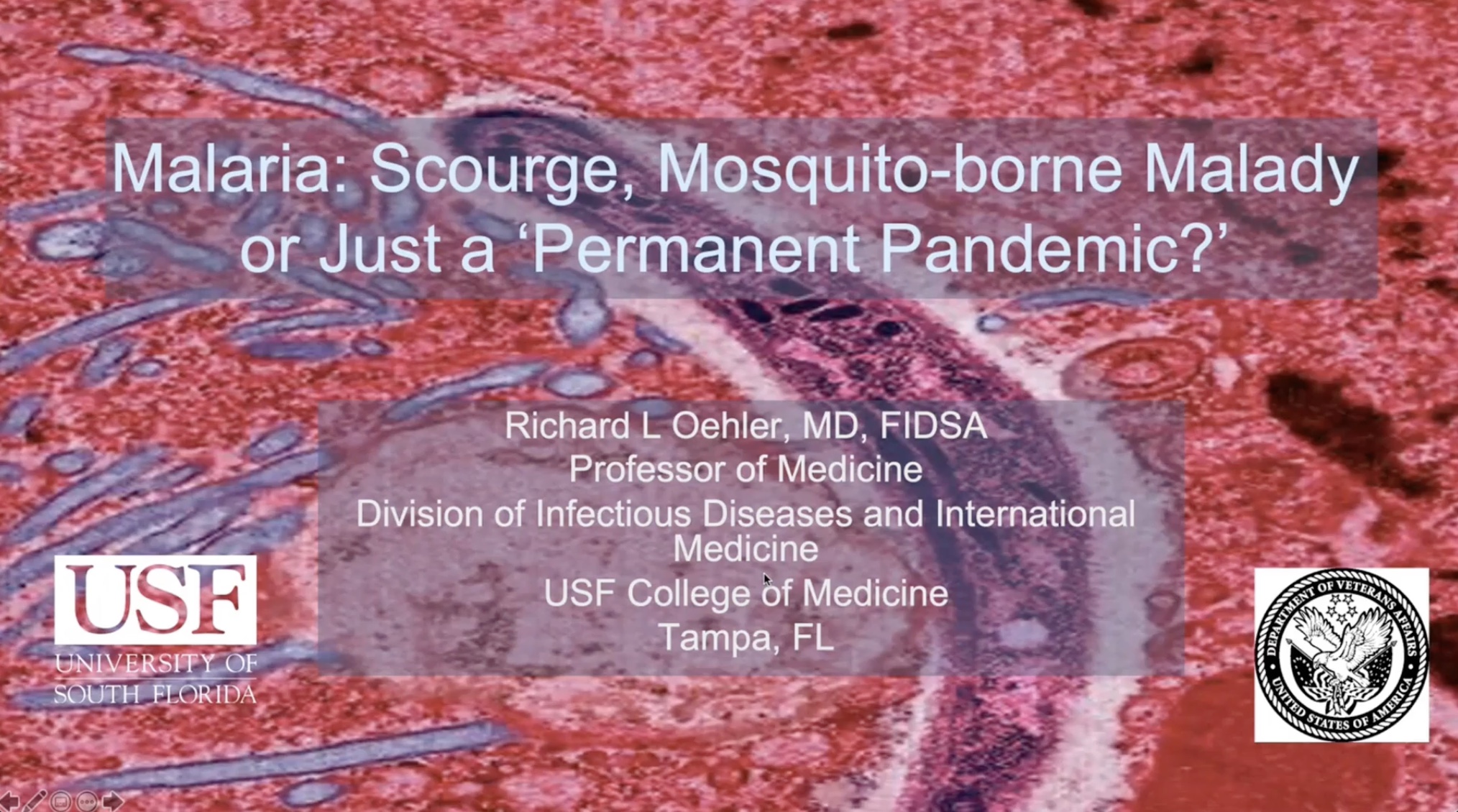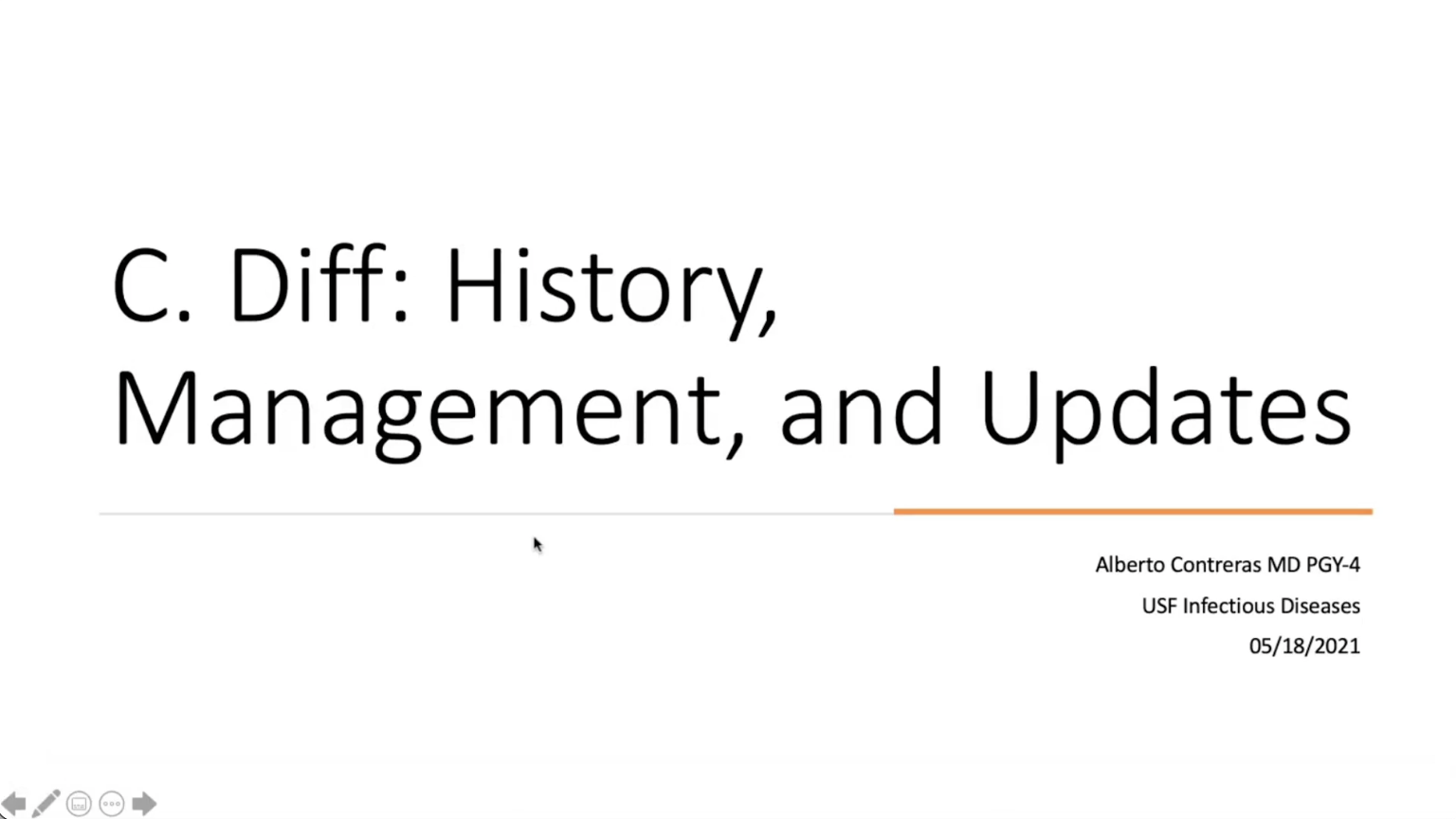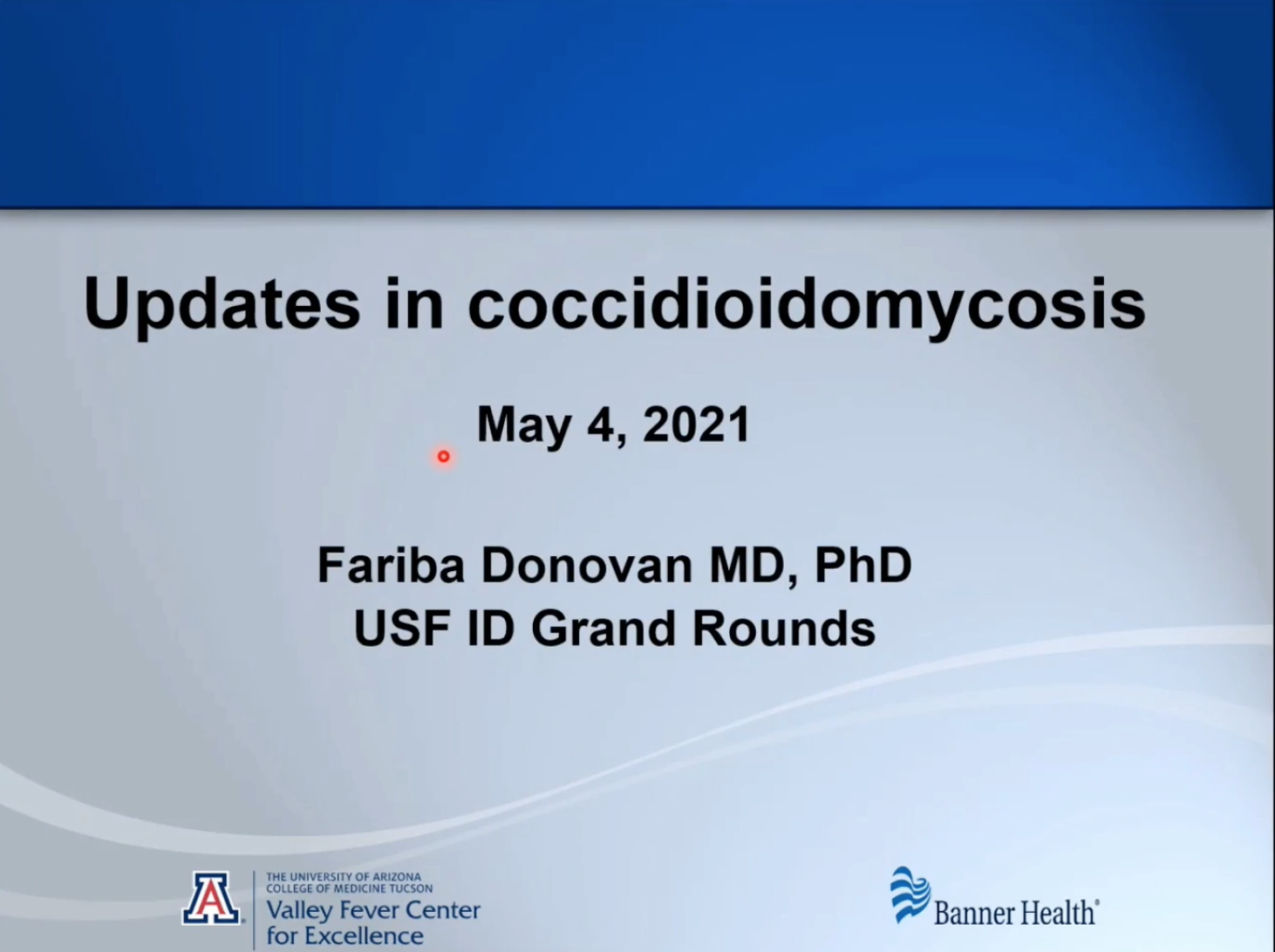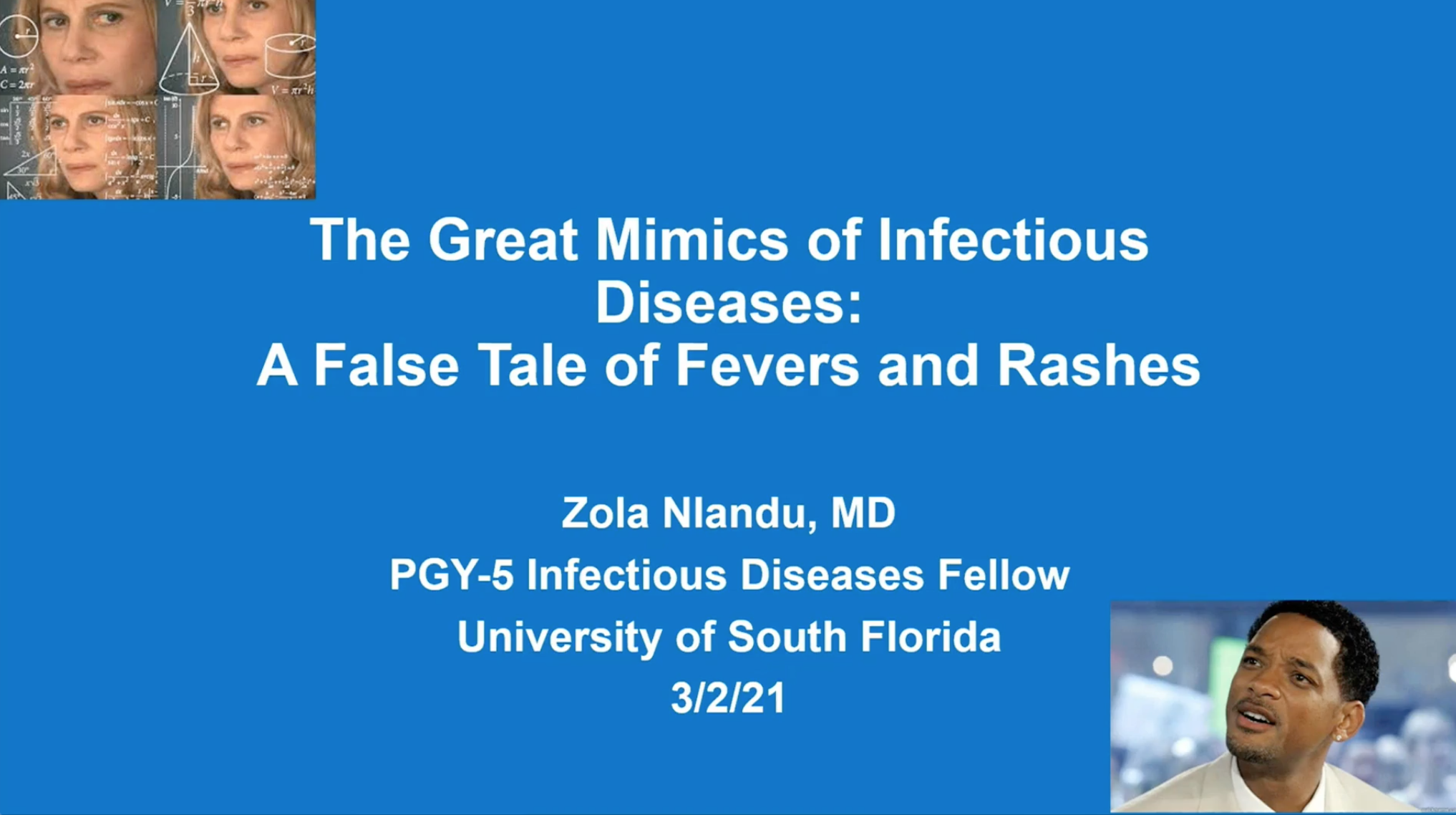Dr John Toney, Professor of Medicine and the Morsani College of Medicine and Chief of Epidemiology at the James A Haley Veterans Hospital shares new recommendations in the management of STDs and STIs. He begins by discussing recent epidemiologic trends in STDs in the US, including the increasing trend in new reported cases over the last 5 years. he then focuses on causes of urethritis/cervicitis, including Gonorrhea and Chlamydia. The updated treatment recommendations for GC and Chlamydia are also discussed. Next, Dr. Toney discusses Syphilis. He explains the rationale behind Treponemal and Non-treponemal tests and how they are used to diagnose the stage of syphilis that is present. Treatment options for early and late syphilis are also explored. Lastly, Dr. Toney discusses Herpes genitalis and Trichomoniasis.
Archives
Introduction to Basic Immune System Function
Dr. Cannella, Assistant Professor at the University of South Florida Morsani College of Medicine, presents an introductory lecture on immune system function. He begins by discussing the first line body defenses such as the skin, mucous membranes, and lymphatic system. He then differentiates the innate versus the adaptive immune system. He then discusses other components of the immune system, including the complement pathway, antimicrobial peptides, PAMPS, DAMPS, phagocytosis, neutrophils, macrophages, dendritic cells, and NK (Natural Killer) cells. A second lecture is planned for later in the fall of 2021.
PO Versus IV Antibiotics for Osteomyelitis and Endocarditis: What’s the Evidence?
Dr. Sherbuk compares and contrasts the advantages and disadvantages of of intravenous versus oral antibiotic therapy regimens in the treatment of infections of bone and the heart in this new podcast. She begins by reviewing the history of osteomyelitis treatment, noting that IV therapy really predominated until the late 1980’s, then the first clinical studies of oral antibiotic therapy for osteo began. Dr. Sherbuk then focuses on the OVIVA trial. She concludes that although multiple RCTs demonstrate noninferiority, further research is needed on this treatment modality. The speaker next reviews PO Step-down therapy for endocarditis, including the POET trial. She concludes that PO step down therapy is an option for certain endocarditis patients, though several issues remain unclear including the length of the IV antibiotic lead-in, the preferred oral regimen, and the frequency of monitoring.
Malaria: Scourge, Mosquito-borne Malady, or just a Permanent Pandemic
Dr. Richard L. Oehler, Professor of Medicine at the University of South Florida Division of Infectious Diseases, presents a talk on the leading single infectious diseases killer of mankind. From its origins at the dawn of humanity throughout Greek, Roman, Middle Age, and contemporary history, Malaria has been a constant threat to civilization and continues to profoundly affect communities in the developing world. Dr. Oehler begins by discussing Malaria’s presence in modern literature, and the well known historical figures that have battled it. Next, he mentions how malaria has been in factor in US millitary history, from the Civil War to the great wars of the 20th century and even to the building of the Panama Canal. The epidemiology of malaria in the 21st century is then discussed, including the heavy burden of the world’s malaria cases currently occurring in Sub-Saharan Africa. The malaria life cycle is reviewed, and the specifics of transmission (including the role of the anopheles mosquito) are conveyed. Next, Dr. Oehler shares information on the clinical manifestations of Malaria, including the distinction between complicated and uncomplicated disease. Other topics mentioned in his lecture include Malaria host genetics, Malaria therapeutic recommendations, Malaria in travelers, Malaria prevention (including chemoprophylaxis), and vaccines.
Clostridium Difficile: History, Management, and Updates
Dr. Contreras, Infectious Diseases fellow at the University of South Florida, discusses a review of Clostridium difficile disease, a major healthcare-associated disorder. He begins by discussing the history of this potentially devastating disease. He then reviews basic epidemiology trends over the last several decades. Next, he reviews C. difficile risk factors. Following this, Dr. Contreras shares the latest recommendations from the recently published new C. difficile IDSA guidelines, including recent changes to the initial treatment of first outbreaks of the disease. Lastly, Dr. Contreras discusses management options for recurrent C difficile, including fecal transplantation, Bezlotoximab, and other potential future therapies.
Updates in Coccidioidomycosis
Dr. Fariba Donovan, Assistant Professor of Medicine at the University of Arizona, and Faculty Member of the Valley Fever Center for Excellence in Tucson, presents her thoughts and perspectives on Coccidioidomycosis, a soil fungus that produces a variety of different pulmonary and non-pulmonary human infections in both immunocompetent and immunocompromised hosts. Dr. Donovan begins her presentation by discussing the epidemiology of Cocci, including the regional areas of high endimicity and typical environmental exposure risks. She then further defines the typical signs of mild self-limited “Valley Fever” and differentiates this from disseminated forms of the infection. The diagnostic work up of Cocci is then reviewed, and she then describes patient treatment, outcomes, and prognosis. Lastly, Dr. Donovan comments on the risks of endemic mycoses on patients on the newer immunomodulatory agents.
Pandemics That Changed History
Dr Michele Davis, Infectious Diseases fellow at the University of South Florida, discusses historical pandemics of the past in this intriguing podcast. Dr. Davis begins her presentation by defining what constitutes a “pandemic.” She then describes ancient pandemics such as the Plague of Athens, Antonine, Cyprian plague, the Antonine plague, and the Justinian plague. Communicable plagues of the middle ages are also covered, such as leprosy, the black death, the first cholera pandemic, and the Spanish Flu. Finally, pandemics of the last few decades are also explored, including HIV/AIDS, SARS, and COVID-19. Lastly, Dr Davis discusses the lessons learned from previous outbreaks and how pandemics demonstrate why equitable access to health care resources is so critical.
Adverse Effects Associated with Cancer Immunotherapies
Dr. Hareesh Singam, infectious diseases senior fellow at the University of South Florida College of Medicine, discusses some of the side effects associated with newer cancer therapies in this informative podcast. Dr. Singam broadly divides his remarks into two categories: Syndromes related to Immune Checkpoint Inhibitors, and Syndromes related to CAR-T Cell Therapy. He begins by briefly introducing the Immune Checkpoint Inhibitors (ICIs) and their mechanisms of action. He then discusses mechanisms of ICI toxicity and their clinical features. Dr. Singam goes on to discuss the associated infectious risks and how they are managed. Next, Dr Singham moves on to CAR-T Cell therapy, including its mechanisms of action, what occurs with cytokine release syndrome (CRS), and describes CAR-T Related Encephalopathy (CRES), CAR-T related hematophagic lyphohistiocytosis/macrophage activation syndrome (HLH/MAS), and the factors behind infectious risk after CAR-T therapy. Lastly, Dr. Singam discusses the use of Tocilizumab in CAR-T therapy.
Neglected Gram Positive Bacilli
Dr. Lopez discusses the gram positive rods/bacilli which are perhaps lesser well known to the clinician but have important clinical relevance nonetheless. He first discusses the classification system for these bacteria. He then descibes coryneform bacteria other than C. diphtheriae, such as C. jeikeium, which can cause both community-acquired and nosocomial infections. Next, Dr. Lopez discusses Bacilli other than B. anthacis. Erysipelothrix rhusiopathae is an example of this category. Next mentioned are anaerobic non-spore-forming gram-positive rods. Cutibacterium is an example of a pathogen producing infections associated with pustular skin eruptions and infections of implanted hardware. Anerobic spore-forming rods such as Clostridium are a major cause of human infections, including gas gangrene, C difficile, and others. In the end, the listener can easily be convinced that the spectrum of gram positive organisms are equally as diverse as the better known group of gram negative bacteria.
Great Mimics of Infectious diseases: A False Tale of Rashes and Fevers
Dr. Nlandu, Infectious Diseases Fellow at the University of South Florida, discusses noninfectious conditions that can mimic everyday infectious diseases diagnoses. He begins by discussing hemophagocytic lymphohistiocytosis (HLH), a life threatening clinical syndrome characterized by extreme immune system activation. Next, he covers Behcet’s disease, a form of vasculitis commonly manifesting as mucocutaneous disease. Familial Mediterranean Fever (FMF) is a rarely diagnosed syndrome seen in persons of Mediterranean descent that can mimic many infectious diseases conditions. Lastly, Adult Onset Still’s disease is a syndrome producing a triad of fever, arthrlagias, and a salmon-covered rash. The diagnosis and management options for each syndrome is characterized.
